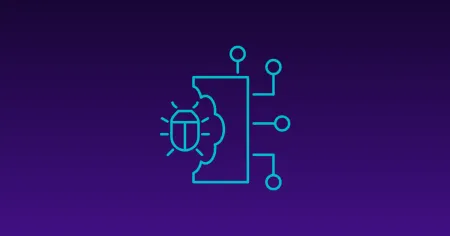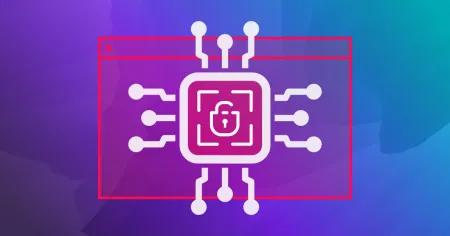Blog
Jul 16, 2024
How to Get Into Cybersecurity: A Beginner’s Roadmap
Learn how to get into cybersecurity with our step-by-step guide to ensure a successful career.
13 min read

Embarking on a cybersecurity career can seem daunting, but with the right guidance, anyone can make their mark in this dynamic field. In this article, you’ll discover a clear, step-by-step roadmap tailored for beginners, outlining different career paths, key certifications, and valuable resources to kickstart your cybersecurity journey. Brought to you by OffSec, renowned for its rigorous, hands-on approach to cybersecurity training, this guide leverages years of industry expertise. By following this roadmap, you’ll not only gain foundational cybersecurity knowledge but also learn how to apply it effectively, setting you on a path to becoming a proficient cybersecurity professional.
Cybersecurity, also recognized as a subset of information security, is the practice of defending computer systems, networks, and user data from unauthorized access, damage, or theft. It encompasses a range of strategies to guard against cyber threats that disrupt operations or compromise information. Given the critical role of technology in modern enterprises, cybersecurity is an essential field within computer science.
- Malware: Short for “malicious software,” malware refers to any program intentionally designed to cause harm to a computer system. Types of malware include:
- Viruses: These are harmful programs that, when executed, replicate themselves by modifying other computer programs and inserting their own code.
- Worms: Similar to viruses, worms can replicate themselves across systems, but they do not require the execution of a host program to cause their damage.
- Ransomware: This type of malware locks or encrypts the victim’s data, demanding a ransom to restore access to it.
- Phishing: This cyber threat involves cybercriminals posing as legitimate institutions via email or messaging platforms to lure individuals into providing sensitive data such as passwords, credit card numbers, and Social Security numbers. These attacks rely on social engineering techniques to deceive users into making security mistakes or giving away information voluntarily.
- Hacking: This refers to unauthorized intrusion into computer systems or networks by individuals or groups seeking to exploit system vulnerabilities for financial gain, to gather information, or to disrupt services. Hacking can be done through a variety of tactics, including exploiting software vulnerabilities, bypassing passwords, or using advanced persistent threats (APTs).
The primary role of a cybersecurity professional is to protect IT infrastructures, computer networks, and data from these types of threats. This involves:
- Preventing cyber threats: Implementing advanced security protocols, conducting regular system audits, and ensuring that all systems are up-to-date with the latest security patches.
- Mitigating attacks when they occur: Quickly identifying the security breach, containing the damage, and recovering any compromised data to minimize downtime and prevent further losses.
- Ensuring data confidentiality, integrity, and availability: Protecting the secrecy and accuracy of information while ensuring that it is readily available to authorized users.
A cybersecurity expert must be vigilant and adaptive, staying informed about new cybersecurity trends and evolving their strategies to address them. A cybersecurity career not only requires strong technical skills but also a continuous commitment to learning and adapting in a field where the challenges are constantly changing.
Cybersecurity is a broad field with various specialized roles that cater to different aspects of security and protection. Choosing a specialization can help professionals focus their skills on specific areas, making them more effective and in-demand experts.
Penetration testing, or pen testing, involves simulating cyber attacks to identify and exploit vulnerabilities in a system, network, or web application. This proactive approach is critical for organizations as it helps strengthen their defenses against actual attacks.
Penetration testing is crucial because it allows organizations to identify security weaknesses before they can be exploited by malicious actors, thereby preventing potential data breaches and financial losses.
Effective penetration testers need a robust set of technical skills including knowledge of networking, programming, and security protocols. Common tools used in penetration testing include Metasploit, Burp Suite, and OWASP ZAP. Strong problem-solving skills and creativity are also essential to thinking like a hacker and anticipating unconventional security flaws.
Digital forensics involves the recovery and investigation of material found in digital devices, often in relation to computer crime. A cybersecurity specialist in this field work to trace hacks, recover lost or encrypted data, and contribute to legal proceedings.
Digital forensics is vital for resolving cybercrimes and other legal issues involving digital evidence. Professionals help maintain the integrity of data and assist in the smooth execution of justice.
Digital forensics experts require a mix of analytical skills and technical competencies, including a thorough understanding of file systems, operating systems, and programming. Attention to detail and a methodical approach to gathering and analyzing data are crucial.
This area focuses on establishing and maintaining a set of policies and procedures intended to safeguard an organization’s information assets. An information security analyst ensures that data remains secure from unauthorized access and leaks.
Effective information security management is essential for protecting the confidentiality, integrity, and availability of corporate data. It helps organizations comply with legal requirements and protects them from financial and reputational harm.
Cybersecurity professionals in this field need strong leadership and strategic planning abilities, along with a good grasp of cybersecurity fundamentals to design and enforce security protocols.
Security analysts play a crucial role in safeguarding an organization’s computer systems and networks. They monitor, analyze, and mitigate threats to maintain data integrity and security.
The role is critical as analysts provide the first line of defense against cyber attacks through constant vigilance and threat monitoring.
A security analyst must have strong incident response capabilities, proficiency in network security, and robust analytical skills. They often use tools like SIEM software, intrusion detection systems, and firewall configurations to detect and respond to potential threats.
Courses and certifications in cybersecurity are crucial as they serve multiple vital functions for professionals in the field. They validate a professional’s skills and knowledge, serving as a benchmark for employers to assess potential employees’ capabilities in managing real-world security challenges. These credentials can open doors to advanced job positions, higher salaries, and greater visibility in the job market.
Certifications also keep professionals updated on the latest technologies, strategies, and regulations, which is crucial in the ever-evolving field of cybersecurity. They enhance credibility, demonstrating commitment and adherence to high standards, which is vital in sensitive roles that handle confidential information. Additionally, certifications often meet industry-specific compliance requirements and offer networking opportunities through seminars and conferences, aiding in professional growth and staying current with industry trends.
Entry-level cybersecurity certifications provide foundational knowledge and skills necessary for a career in cybersecurity. These certifications are designed to establish a professional’s understanding of core security principles, network administration, and threat mitigation. Ideal for those just starting out, they open the door to initial cybersecurity jobs in the field and help build a solid base for further specialization and advanced certifications.
The OffSec SEC-100: CyberCore – Security Essentials course is designed to provide a solid foundation for individuals starting a career in cybersecurity. This entry-level certification course provides learners with the essential skills and knowledge required for various cybersecurity roles. Covering topics like offensive and defensive strategies, networking, scripting, and system security, the course culminates in a demanding 6-hour exam. Successful candidates receive the OffSec CyberCore Certified (OSCC) certification, proving their cybersecurity expertise and boosting their employability in entry-level positions. This course is especially beneficial for recent graduates or IT professionals transitioning to cybersecurity, offering 12 months of access to extensive materials and hands-on labs.
Advanced cybersecurity certifications are crucial for professionals aiming to occupy senior roles within information security. These certifications demonstrate a deep understanding of complex security issues and management practices and are often required for high-level positions. They not only validate expertise in designing, managing, and overseeing a company’s security posture but also highlight the holder’s commitment to the evolving field of cybersecurity.
The OffSec PEN-300: Evasion Techniques and Breaching Defenses course is advanced training for penetration testers who have foundational skills, such as those gained from the OSCP certification. It explores sophisticated techniques for bypassing network defenses, circumventing antivirus systems, and conducting complex, stealthy attacks. Completing the course and passing the exam grants the OffSec Experienced Penetration Tester (OSEP) certification. This cybersecurity certification prepares learners for roles like senior penetration testers and red team operators, emphasizing hands-on skills in a lab setting to tackle real-world security challenges.
The WEB-300: Advanced Web Attacks and Exploitation course by OffSec is an advanced training program for penetration testers and web security professionals. It focuses on white box penetration testing techniques, teaching students to audit web application source code, exploit a range of web vulnerabilities, and perform complex, multi-step attacks. Successful completion awards the OffSec Web Expert (OSWE) certification, certifying advanced skills in exploiting web applications.
The EXP-301: Windows User Mode Exploit Development course is training designed for professionals seeking to specialize in Windows exploit techniques. This course covers essential topics like buffer overflow attacks, writing custom shellcode, and bypassing security measures such as DEP and ASLR. Successful completion awards the OffSec Exploit Developer (OSED) certification equipping learners for roles in penetration testing, exploit development, and security research.
When starting a career in cybersecurity, there are various training and educational resources available that cater to different learning preferences and career goals.
- Online Courses: OffSec offers a variety of cybersecurity courses designed to provide both foundational knowledge and advanced skills. These courses range from introductory topics to deep dives into complex security techniques and are well-suited for various roles in cybersecurity. OffSec’s courses are known for their hands-on approach, preparing learners for real-world challenges they’ll face in the field.
- Degree programs in cybersecurity: Many universities now offer degree programs specifically in cybersecurity. These programs typically cover a broad range of topics, from the technical aspects of securing systems and networks to policies and procedures that help protect sensitive information against cyber threats. Degree programs can provide a solid foundation and are often recognized by employers as a significant credential.
- Bootcamps and workshops: For more intensive, focused learning, bootcamps and workshops provide short-term training options that cover specific areas of cybersecurity. These are typically more immersive and are designed to quickly get you up to speed on the skills needed for entry-level positions in cybersecurity.
- OffSec’s Skill Paths: OffSec offers targeted Skill Paths that guide learners through specialized areas of cybersecurity. Each path is designed to develop expertise in a specific domain, such as penetration testing, web application security, or network defense. Completing a Skill Path allows learners to earn an OffSec Skill Pin, which demonstrates their proficiency and specialized knowledge in that area. These paths are beneficial for building detailed and practical skills that are directly applicable in the field.
Each of these educational pathways offers unique benefits, and your choice may depend on your current cybersecurity skill level, career goals, and the time and resources you can dedicate to learning.
Gaining practical experience in cybersecurity is essential for several reasons. It allows individuals to apply theoretical knowledge in real-world scenarios, helping to solidify and extend learning. Practical experience also makes cybersecurity concepts more tangible and easier to understand. Moreover, it significantly enhances employability, as most employers highly value hands-on experience in this field.
Creating a personal cybersecurity lab is a cost-effective way to gain hands-on experience. You can simulate a cyber attack, test security tools, and practice defensive strategies in a controlled environment. This setup helps in understanding the intricacies of how different systems interact and how vulnerabilities can be exploited.
OffSec’s labs offer a deeply immersive environment where you can sharpen your hacking skills in real-world scenarios. These labs are designed to simulate complex networks and systems, providing a practical field for both novice and advanced users to practice cybersecurity tactics. By engaging with OffSec’s labs, you can apply your knowledge in a safe, controlled setting, allowing you to understand system vulnerabilities, exploit development, and effective countermeasures. These hands-on experiences are crucial for anyone looking to enhance their practical cybersecurity skills.
CTF competitions are another excellent way to gain practical experience. These events are competitive and involve solving security puzzles or breaking into test systems. They are not only fun but also a great way to learn from peers and improve problem-solving skills under pressure.
Internships are a pivotal step in gaining formal work experience. Platforms like LinkedIn, Indeed, and company-specific career pages are useful for finding internships. Tailoring your resume to highlight relevant coursework, projects, and personal security labs can improve your chances of securing a position.
Joining professional organizations or local cybersecurity groups can provide valuable networking opportunities. These organizations often offer resources for career development, and learning, and can connect you to potential employers or mentors in the field.
Many cybersecurity tools are open-source, allowing volunteers to contribute to their development. This is a great way to gain experience, as you can work on real projects and improve software used industry-wide.
Landing an entry-level cybersecurity job involves understanding how to showcase your skills, prepare for interviews, and effectively search for job opportunities.
- Research the company: Understanding the company’s culture, mission, and security practices can help tailor your responses and demonstrate that you are a good fit for the cybersecurity role.
- Quantify achievements: Whenever possible, use numbers to quantify your achievements in your resume or during interviews, such as “Improved system security compliance by 20% through regular vulnerability assessments.”
- Practice technical skills: Be prepared to discuss and possibly demonstrate your technical proficiency. Review key tools and technologies that are relevant to the job.
- Soft skills are key: Emphasize your ability to communicate complex security issues to non-technical stakeholders, which is a valuable skill in any cybersecurity role.
- Follow-up: After interviews, send a thank-you email to express your appreciation for the opportunity and reiterate your interest in the position.
- Highlighting relevant skills and certifications
- Ensure your resume and cover letter clearly highlight your cybersecurity skills and any certifications you hold. These qualifications catch an employer’s eye by demonstrating your commitment and knowledge in the field.
- Tailoring applications to specific job descriptions
- Customize your resume and cover letter for each job application based on the job description. Use keywords from the job posting and focus on relevant experiences that align with the specific role to which you are applying. This tailored approach shows that you have taken the time to understand the job and believe you are a good fit.
- Common interview questions for cybersecurity roles
- Prepare for common cybersecurity interview questions such as “What methodologies do you use for penetration testing?” or “Explain a time you identified and resolved a security threat.” These questions assess your technical knowledge and problem-solving skills.
- Demonstrating problem-solving skills and practical knowledge
- Be ready to discuss specific instances where you’ve applied your cybersecurity knowledge in practical settings, such as in your home lab, during internships, or in CTF competitions. Be prepared to solve problems on the spot or walk through how you would approach a hypothetical security scenario during the interview.
- Utilizing cybersecurity job boards and company websites
- Regularly check job boards like Indeed, Glassdoor, and LinkedIn, as well as company-specific career pages. Many companies list openings on their websites before they appear on job boards.
- Networking with professionals in the cybersecurity industry
- Networking is crucial in how to get into cybersecurity. Attend industry meetups, conferences, and seminars. Engage with cybersecurity specialist groups on social media platforms and join forums like those found on Reddit or industry-specific sites. Networking can often lead to job opportunities that aren’t advertised publicly.
Embarking on a career in cybersecurity can be a rewarding and challenging journey. To recap, start by acquiring foundational knowledge through courses and certifications that offer hands-on experience, such as those provided by OffSec. Engage in practical activities like setting up a home lab, participating in CTF competitions, and taking advantage of internship opportunities to gain real-world experience. Tailor your resume and cover letter to reflect your skills and certifications, and prepare thoroughly for job interviews by familiarizing yourself with common questions and demonstrating your problem-solving capabilities.
As you continue learning how to get into cybersecurity, remember that the cybersecurity field of cybersecurity is ever-evolving. Keeping abreast of the latest trends, technologies, and threats is crucial. Regularly update your skills through continuous learning and network with professionals in the industry. Each step you take not only enhances your expertise but also deepens your understanding of the complex cybersecurity landscape.
The journey to becoming a proficient cybersecurity professional is ongoing, and each challenge you overcome enriches your career and the security community at large. Your persistence and dedication to learning will set you apart in this dynamic field.
Stay in the know: Become an OffSec Insider
Get the latest updates about resources, events & promotions from OffSec!
Latest from OffSec

Enterprise Security
How OSCP Holders Can Lead Their Teams to Greater Cybersecurity Resilience
Champion OSCP training in your organization to build a unified, resilient security team.
Apr 11, 2025
6 min read

Research & Tutorials
CVE-2024-57727: Path Traversal Vulnerability in SimpleHelp Web Application
CVE-2024-57727 lets attackers read sensitive files via path traversal in SimpleHelp. Learn more about how attackers exploit this flaw.
Apr 10, 2025
3 min read

Penetration Testing
AI Penetration Testing: How to Secure LLM Systems
Explore how AI penetration testing enhances LLM security, addressing unique vulnerabilities and improving cyber defenses.
Apr 3, 2025
8 min read